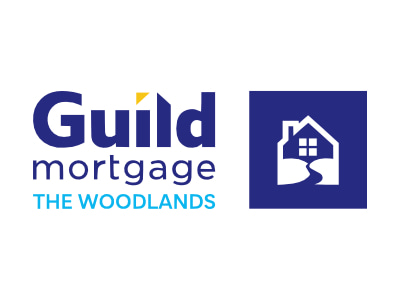- Categories :
- More
Common mortgage scams and how to avoid them

The mortgage process is an exciting step toward achieving your future dreams, but as you navigate this experience, it’s wise to be on the lookout for scammers and cheats who prey on unsuspecting borrowers.
Wondering what some of the most common mortgage scams are? In this article, we’ll review:
- Reverse mortgage scams
- Wire fraud during the closing process
- Schemes that target applicants after their credit reports are pulled
You’ll also learn smart strategies for safeguarding your personal information throughout the mortgage process to avoid unexpected and expensive surprises.
Reverse mortgage scams
If you’re a homeowner aged 62+ you may be wondering, are reverse mortgages a scam? The answer is no; they’re legitimate, government-regulated financial products that provide many benefits to older Americans. However, they can be misused or misrepresented by fraudsters.
These bad actors may pose as government officials, financial advisors or contractors and often promise free money, home improvements, or government benefits. They encourage homeowners like you to take out a home equity conversion mortgage (HECM)—also known as a reverse mortgage—and use the cash proceeds to pay for unnecessary services or invest in fraudulent schemes.
How to avoid it:
Verify the source: Contact the U.S. Department of Housing and Urban Development (HUD) to confirm identity and/or authenticity.
Be wary of pressure tactics: Legitimate professionals should never push you to make quick financial decisions.
Seek independent advice: Consult with an attorney or reach out to Guild. We have specialists who can provide trusted information about the risks and benefits of our Flex Payment Home Equity Conversion Mortgage*.
Wire fraud during the closing process
A recent title industry survey found 51% of consumers were not adequately aware of wire fraud at the start of the closing process. Unfortunately, over the last few decades, fraudsters and hackers have become masters at this type of mortgage scam, intercepting communications between real estate-related professionals and homebuyers, tricking them into wiring funds to fraudulent accounts.
How to avoid it:
Confirm wire instructions: Call the title company or real estate agent using a known phone number. Don’t rely on contact information provided in emails. At Guild, we make it easy to confirm any wire information related to our loans.
Be suspicious of last-minute changes: This should be a huge red flag. Always double-check with trusted parties.
Use secure communication: Trusted lenders like Guild offer an encrypted closing process designed to ensure the confidentiality, integrity, and security of all sensitive information involved in the mortgage closing process.
Post-credit report pull schemes
A standard part of the mortgage application process is called a credit report pull. It occurs when your lender checks your credit history to assess your ability to repay a mortgage. After a credit report is pulled, scammers may pose as credit repair companies and contact you. They claim issues were found on the credit report that could jeopardize your mortgage approval and offer “fixes” for a fee.
How to avoid it:
Direct communication: Reach out to your lender using verified contact information.
Check your credit report: If issues arise, address them with the three major credit reporting agencies, Experian, Equifax, and TransUnion
Be cautious of unsolicited offers: Legitimate companies don’t ask for payment upfront to fix credit report issues.
Protecting personal information to avoid mortgage scams
One in 20 Americans who bought or sold a house in the last three years have been victims of some type of real estate fraud, according to a recent report. By securing your sensitive information, such as your Social Security numbers and bank account details, you’ll help ensure both your financial security and a smoother mortgage process. Here’s how:
Use strong, unique passwords: Avoid using easily guessed passwords, change your passwords frequently and consider using a password manager.
Enable two-factor authentication: This is a vital layer of extra security.
Monitor your accounts: Regularly check your bank and credit card statements for suspicious activity and set up alerts for large transactions.
Secure your devices: Ensure that your computers, smartphones and other devices are protected with antivirus software and regular updates.
Be mindful of public Wi-Fi: Avoid accessing sensitive information, such as banking details, in airports, hotels, coffee shops and other public places.
Shred sensitive documents: Personal information should be destroyed before disposing of them.
Educate yourself: Stay informed about the ever-changing landscape of scams and fraud tactics.
Enjoy ongoing guidance: At Guild, our trusted Guild loan officers are with you from pre-qualification to closing and beyond. We’re committed to helping you reach your goals and will do everything possible to support you in safely and securely building wealth through homeownership. Reach out any time.
*Flex Payment Mortgage is Guild’s version of a reverse mortgage. HECMs are federally insured by the Federal Housing Administration (FHA).
These promotional materials were created by Guild Mortgage independent of HUD, FHA or any other government agency participation. Borrower must maintain home as principal residence, pay all taxes, insurance, maintain the home, and comply with all other loan terms. Fixed-rate and adjustable-rate home equity conversion mortgages (HECMs) are insured by the Federal Housing Administration (FHA). Fixed-rate loans are distributed in a single lump sum with no future draws. Adjustable-rate mortgages offer five payment options and allow for future draws. The age of the youngest borrower determines the amount of funds available that can be received during the first 12-month period, subject to an initial disbursement limit.
The above information is for educational purposes only. All information, loan programs and interest rates are subject to change without notice. All loans subject to underwriter approval. Terms and conditions apply. Always consult an accountant or tax advisor for full eligibility requirements on tax deduction.










